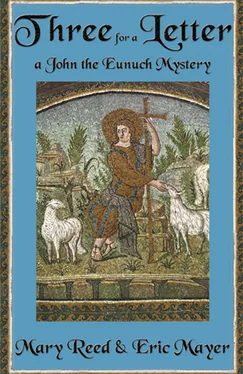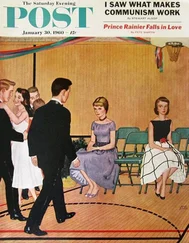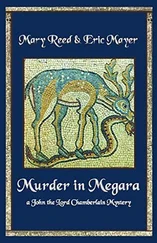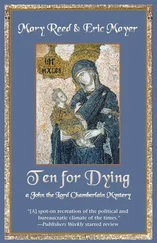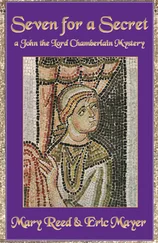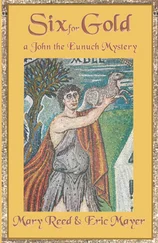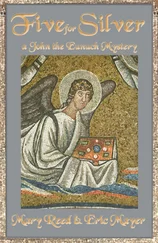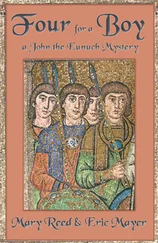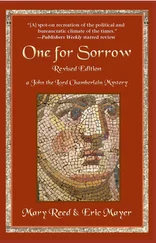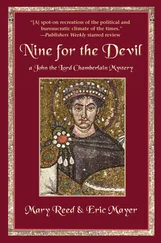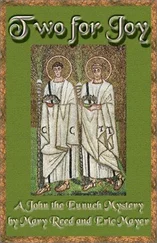Mary Reed - Three for a Letter
Здесь есть возможность читать онлайн «Mary Reed - Three for a Letter» весь текст электронной книги совершенно бесплатно (целиком полную версию без сокращений). В некоторых случаях можно слушать аудио, скачать через торрент в формате fb2 и присутствует краткое содержание. Год выпуска: 2011, ISBN: 2011, Издательство: Poisoned Pen Press, Жанр: Исторический детектив, на английском языке. Описание произведения, (предисловие) а так же отзывы посетителей доступны на портале библиотеки ЛибКат.
- Название:Three for a Letter
- Автор:
- Издательство:Poisoned Pen Press
- Жанр:
- Год:2011
- ISBN:9781615951758
- Рейтинг книги:5 / 5. Голосов: 1
-
Избранное:Добавить в избранное
- Отзывы:
-
Ваша оценка:
- 100
- 1
- 2
- 3
- 4
- 5
Three for a Letter: краткое содержание, описание и аннотация
Предлагаем к чтению аннотацию, описание, краткое содержание или предисловие (зависит от того, что написал сам автор книги «Three for a Letter»). Если вы не нашли необходимую информацию о книге — напишите в комментариях, мы постараемся отыскать её.
Three for a Letter — читать онлайн бесплатно полную книгу (весь текст) целиком
Ниже представлен текст книги, разбитый по страницам. Система сохранения места последней прочитанной страницы, позволяет с удобством читать онлайн бесплатно книгу «Three for a Letter», без необходимости каждый раз заново искать на чём Вы остановились. Поставьте закладку, и сможете в любой момент перейти на страницу, на которой закончили чтение.
Интервал:
Закладка:
“How did you become interested in these strange mechanical devices in the first place?” John asked with interest.
“Well, it came about because my neighbor Castor has a most remarkable library. More than a hundred volumes, if you can imagine that, and not just your usual works by Homer and John Chryso-stom either! Anyhow, it was in his library that I came across a copy of Hero of Alexandria’s Pneumatics. It’s filled with diagrams and instructions for the construction of any number of truly amazing inventions.”
“Hero never mentioned this Pneumatics. He called himself the inventor of the whale.”
“That’s true enough. The ancient inventor did not describe a whale as such but rather useful bits and pieces that we incorporated into it, duplicating the parts as closely as possible. I can tell you, it wasn’t easy when we first began. A pressurized container exploded, not once but twice. Hero had been carefully following a special instruction in his namesake’s treatise. However, Castor must have been studying the work, thought he had a better idea, and amended the text! Not surprisingly, the original inventor had known better.” Zeno had begun to gesticulate enthusiastically, his eyes glittering with excitement, but as they emerged from the olive grove between his gardens and the grassy headlands of the shore, his voice trailed off.
“I’m such a fool,” he said sadly. “A prattling old fool! A child has died and here I am, rambling on about such things! Gadaric should be playing dodge ball out here, not lying dead under my roof. I acquitted myself quite well when we played it, you know. I’m nimble considering my age although there again I do present a larger target than either of the children.”
The gentle breeze ruffling the rough grass on the headland they were crossing carried the faint smell of smoke from the workshops.
John asked if the children had displayed particular interest in Hero’s inventions.
“Of course they did!” Zeno replied sorrowfully. “I must say in a way I blame myself since I allowed them to watch Hero and his assistants at work. The children were fascinated by it all. They’re frighteningly intelligent children, monsters of precocity, John. I suppose it comes from being raised in isolation and tutored endlessly almost from birth.”
Zeno moved suddenly, like a startled bird, his baggy orange dalmatic billowing out and his hair flying. A dull thump and the leather ball lying in the grass arced up into the sky, propelled by his boot.
John decided Zeno’s estate was not a good place to ponder puzzles. Not that this particular puzzle seemed very difficult. The only missing piece was Barnabas and if he was not here, then where else could he have gone but Constantinople?
It was time to return home.
Chapter Four
John sat in the study of his house on the grounds of the Great Palace, sipping a cup of the vinegary Egyptian wine he had favored since the long-ago days when he had lived in Alexandria.
It was late afternoon, when men hastened to their homes and evening meals while those who had neither began to drift into neglected corners of the city seeking the company of their impoverished fellows and perhaps a stale scrap of bread found in the gutter or stolen while the baker’s attention was elsewhere.
The rusty light of the dying sun laying a bloody hand across Constantinople spilled in through the window and across a wall mosaic depicting a placid rural scene not unlike those through which John had ridden on his return from Zeno’s estate.
John had discarded his travel-soiled garments for a simple white tunic. Lost in thought as he stared at the mosaic, he could have been mistaken for a well-to-do, albeit rather ascetic, merchant pondering about the day’s takings or possibly formulating plans for a family celebration.
“It seems that recent events on Zeno’s estate are sadly much more harrowing than what’s happening in your landscape, Zoe,” John said quietly as he set his cracked clay cup aside.
The almond-shaped eyes of the mosaic girl he addressed had been given a semblance of life by the sun’s rays, but she remained silent.
Zoe was a familiar figure, a confidante who knew more about John than anyone, for in times of stress he spoke to her. John knew that the habit distressed his elderly servant Peter, but he found it aided him in untangling his thoughts. Talking to Zoe allowed him to sort through untidy scraps of information. Thus, however indirectly, it helped bring him to a point where he could take the always breathtaking leap from uncertainty to clarity. It was subsequently proving what he saw to be the truth that was the difficulty, as he had remarked to Zoe more than once.
This evening, however, something in the mosaic girl’s appearance troubled John. He got up and paced back and forth across the tiles through the light of the sunset. After a while he realized the source of the problem.
“It’s the other girl,” John told Zoe. “She looks like you.”
It wasn’t just the large, almond-shaped eyes that the surviving twin Sunilda had in common with Zoe, although that similarity was striking enough. He recalled the little girl he had seen only briefly. She was, if anything, small for her age, with the thin limbs of a child but blessed with long, dark hair shadowing a solemn face that seemed much older.
Perhaps that was where the real resemblance lay, he mused. Both children, the one a guest on the rambling estate by the sea and the other living on John’s study wall, exhibited an air of maturity beyond their years. There was something mysterious about both of them too, as if they were not quite what they appeared to be.
“But, then,” John muttered, stopping to look out of the window into the square and talking to himself as much as to the mosaic girl, “who can blame those who have been imprisoned by circumstances as much as by prison bars if they develop strange humors?”
A rising breeze carried the tang of salt from the Sea of Marmara through the half-open window. The smell reminded John of the travels of his youth, the long journeys that had taken him half way around the world. Difficult and often dangerous travel, to be sure, yet no place he had visited, not even Egypt, had struck him as more exotic than Zeno’s estate.
“How long a journey from Italy it must have seemed for one as young as Sunilda,” he reflected. “She’s scarcely your age and already she’s lost her brother, Zoe. I think you would enjoy walking with her on the beach or looking for shells or perhaps even playing dodge ball with her.”
He paused, awkwardly and suddenly aware that he had not seen his own child grow from an infant to the coltish grace of the girl living in Zeno’s villa, far away from any of her blood relatives. How could he be certain what such children thought or what games they would enjoy?
“It’s a sad thing that the boy died so young. I fear Zeno will ultimately suffer for his carelessness, but fortunately for him he doesn’t appear to realize that. No wonder Anatolius has such an unworldly streak at times. It must be in the blood.”
The room was growing dark. Peter would soon bring in a lamp and announce his master’s meal was prepared, just as he did each evening. The thought reminded John of the lamps that had revealed the pathetically crumpled body of the boy when the mechanical whale’s mouth ponderously opened. Would the lighting of a lamp forever summon forth the same memory?
He recalled what had happened at the banquet. He had been first to realize that the figure within the great maw was not going to comically leap forward and indeed was not even Barnabas. But where could the mime have gone after performing his last scene?
And why would he have murdered Gadaric?
Читать дальшеИнтервал:
Закладка:
Похожие книги на «Three for a Letter»
Представляем Вашему вниманию похожие книги на «Three for a Letter» списком для выбора. Мы отобрали схожую по названию и смыслу литературу в надежде предоставить читателям больше вариантов отыскать новые, интересные, ещё непрочитанные произведения.
Обсуждение, отзывы о книге «Three for a Letter» и просто собственные мнения читателей. Оставьте ваши комментарии, напишите, что Вы думаете о произведении, его смысле или главных героях. Укажите что конкретно понравилось, а что нет, и почему Вы так считаете.
